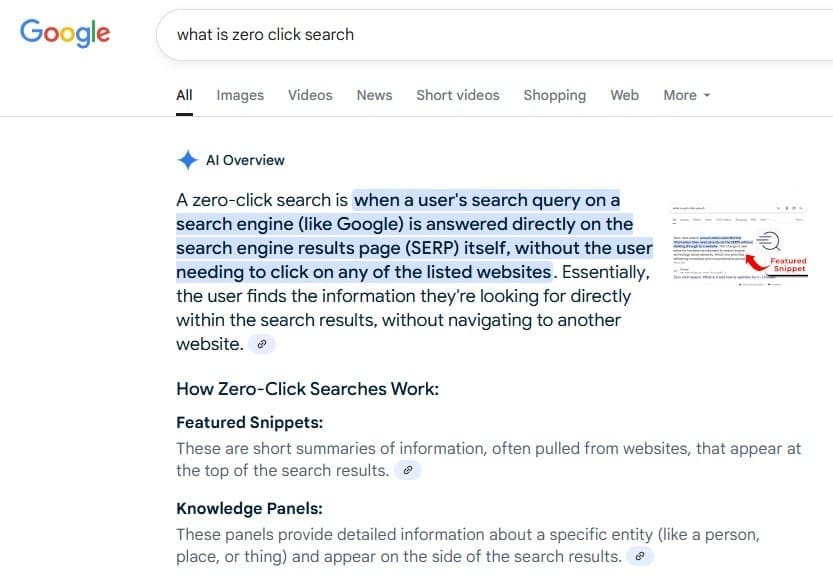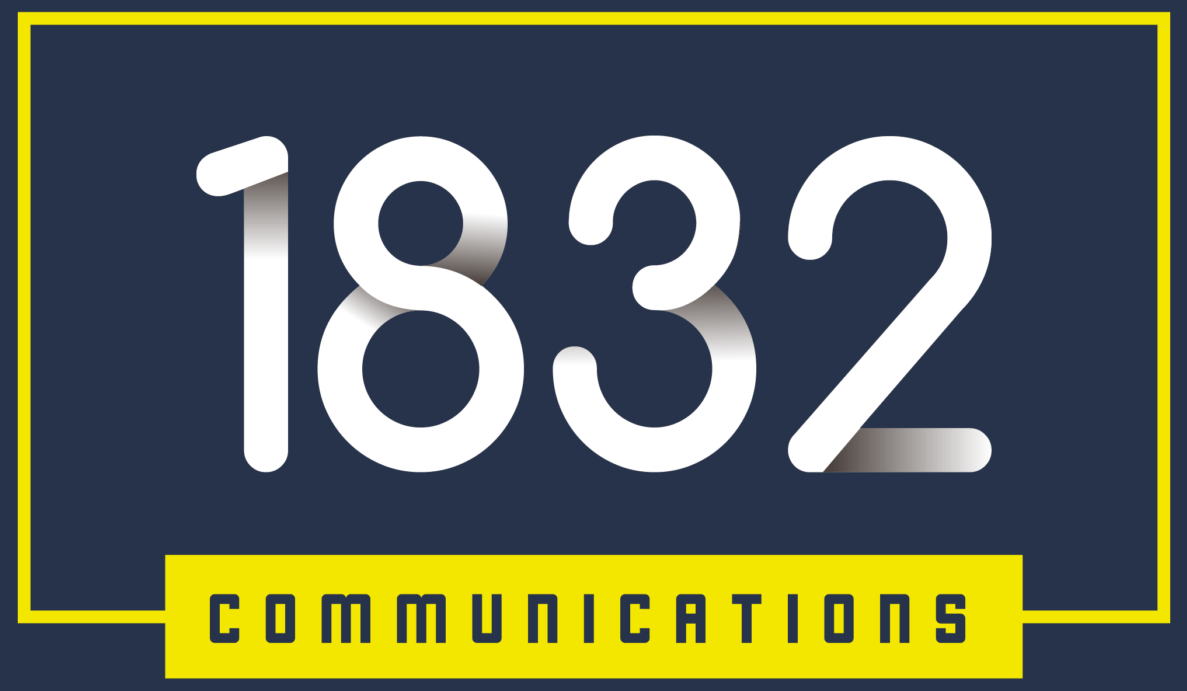AI is coming for my job. And yours.
AI will revolutionize the world. AI will solve all our problems. AI will find a cure for the common cold.
I’m sure you’ve read, heard and watched about how AI is gonna take over and all the doomsday predictions from analysts.
I’m not an AI expert. What I CAN do is discuss one aspect of it and how it affects your work.
For starters, let’s talk about a major change in how people search for information:

Google has made a major change. Instead of links at the top of the search results directing you to a website with more information, their AI tool now shows you the answer to your question, along with further details. Links to other websites are now farther down on the page.
This has led to an increase in “zero click search.”

The answer you’re looking for appears right there at the top of the search results page. You don’t have to click on any exterior sites. Which could definitely mean less traffic coming to your website.
Why should I click if the answer I need is right there on the screen?
This of course has a major effect on what people learn and know and how they process information. People are crazy busy and don’t have time to click and learn. So if Google provides you what you’re looking for, awesome! You can move on to the next thing.
Additionally, more people are using tools like ChatGPT to access information. They use these AI tools like Google- search, find answers to their questions, move on.
The problem is: How accurate is the information these AI tools are providing? I’m sure you’ve seen articles about lawyers using ChatGPT to submit briefs and it turns out ChatGPT provided cases about the relevant law that don’t exist.
In fact, a recent report states that 92% of people don’t bother to check the answers they get from AI tools! They just assume the info is accurate and truthful.
As AI tools become more and more widespread, more people will use them to help with their workload. Plenty of people in our sector use AI to help with fundraising, marketing, content, research and more. Loads of great reasons to integrate AI tools into your workflow.
But misuse of these tools can do more damage than good.
Which is why I wanna discuss your end of year fundraising letter. I want your campaign to surpass its goals! AI can help with that but only if you use it as a tool to help, not the begin and end all.
Use AI wisely
If you spend enough time on LinkedIn, you start to notice when a specific post was written by a human and when it was a copy/paste from AI.
One way to tell: ChatGPT and other AI tools LOVE to use the em dash. Why? 🤷♂️
But the biggest giveaway is how the copy doesn’t sound like it was written by a human. People can tell the difference.
Is it a big deal that people use AI tools to compose LinkedIn posts? It saves them time and effort. Question is if the post engagement suffers because people want to engage in conversation with a HUMAN, not a bot.
Which leads me to your year-end fundraising campaign letter.
If you want your year-end campaign to surpass your goals, then your campaign letter has to:
- Be composed like you talk (you’re having a conversation with an individual).
- Be simple, not complex (Follow these rules to raise more).
- Include an ask which is clear, direct and urgent.
- Show the impact of a gift ($25 pays for 3 hours of after-school educational help).
- Throw grammar into the trash. It’s a conversation! Use half sentences. Start a sentence with “and” or “but.” Have one-word paragraphs.
- Stop using jargon! Words and phrases you use around the office? Not for your fundraising letter. You understand it. Your readers won’t.
- Ditch your brand standards. Talk like a person, not like a logo.
- Write at a low grade level. Using words like “punctilious” and “capricious” will make readers have to think what it means. The last thing you wanna do is confuse them or make them think. Make the campaign copy easy to read, understand and act upon. (21 1/2 tips for better fundraising writing)
- Be about “you” the donor (You can save a life. Your gift will make a difference.). Less “we” the organization, more “you” the donor.
- Have a good reason for me to give (the word “because” matters!).
In short, your letter should be human. A chat between two people.
Where does AI fit into all this? AI can create a first draft of a letter. But I wouldn’t use it beyond that.
As a former fundraiser, I know how much it stinks to be staring at a blank screen. AI tools can be very helpful in generating ideas and a very rough first draft. (Sometimes for me it’s easier to edit than compose.)
But then your fundraiser needs to take over. Review the first draft, edit, change, fix, improve, upgrade. Add the human touch.
If you decide to “save time” by using an AI tool to draft the letter and that’s what gets sent to the printer, it’s gonna hurt your bottom line. Readers don’t want something that lacks emotion, feeling and reads like a robot wrote it.
The copy is DOA.
I know how much time goes into composing a year-end letter. But relying exclusively on AI isn’t the smartest route to growth. You’re telling your readers:
We didn’t invest time and effort in this. You’re not worth it. But please donate anyway because we need the money.
Using AI tools to help with fundraising and marketing CAN be helpful and useful. But until AI can write like you do, talk like you do, sound like you do, it’s an assistant, not the answer.
A first draft? Yes. But then let the humans take over.



